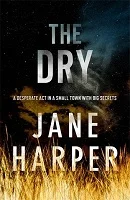Review: The Run of His Life
/5 stars. This is an epically-written, well-researched, carefully thought out narrative retelling of O.J. Simpson's crime, trial and aftermath. Instead of setting out to prove O.J.'s guilt (there's really no need), Toobin takes a deep dive into why he wasn't found so by the court. Beginning with the tragic murders and moving chronologically through the verdict, Toobin successfully navigates the many answers to that question: the sociological factors, including historical and regional context, the power and weirdness of fame and celebrity worship, the flaws of the justice system, the distinct and distinctly damaging personalities involved... and here we truly do have a fascinating constellation of characters caught in O.J.'s orbit.
It's true that Nicole Simpson and Ron Goldman - the victims - typically aren't honored appropriately in any discussion of this crime or case. Ron Goldman, especially, is a virtually absent character in all the news stories, documentaries and trial analysis. And while Toobin could have dedicated plenty of words to Nicole and Ron's lives, rather than their deaths, that's not what this book is about. He does, to the best of his ability, emphasize the terribly sad nature of domestic violence cases, and the totally helpless last few days of Nicole's life. This is what earned the book five stars, for me. His focus? Clear - and not Nicole. But he never dims her light or diminishes her memory. He's respectful.
Beyond that, I couldn't put it down. It's essentially a sort of sociological thriller that should be required reading for lawyers, media moguls, history buffs, true crime buffs, celebrity worshippers, and more. There are twists and turns, jokes, cringeworthy mistakes, clownish characters ... it is high drama in a way only real life can be. Toobin injects a sort of mischievous charm into his words, winking at us and gasping with us when things get weird. And boy, do they.
I was a baby when all this went down, but I grew up in the 90s, and can't remember NOT knowing who O.J. Simpson was. That being said, I always knew him as a murderer. I really enjoyed getting a peek into why his downfall was so shocking and unbelievable for so many - for those who knew him as a star athlete, a golfer, a Hertz spokesperson, an only semi-talented comedic actor. I wish Toobin wrote a sequel, or an additional afterword, tracking Simpson's life after all of this. The continued legal troubles and criminal behavior, the Miami years... Toobin lent such a sharp eye to O.J.'s true character (he rightly paints him as an abusive, semi-literate, materialistic asshole), and I'd love to see him expand on that now.
Holy shit though, can we talk about the trial itself? What a perfect storm of egos and incompetencies. We know that the justice system is an imperfect system because it is a human system, and fuck, this really proves it. How can people be so smart and so dumb? So capable and so arrogant and so intelligent but so un-self-aware? How can people be so ignorant and racist and hopeful and well-intentioned? So brilliant and damaging at the same time?
Back on track: read this book. It's wonderful. It's engaging. It's educational and thrilling and heartbreaking.










